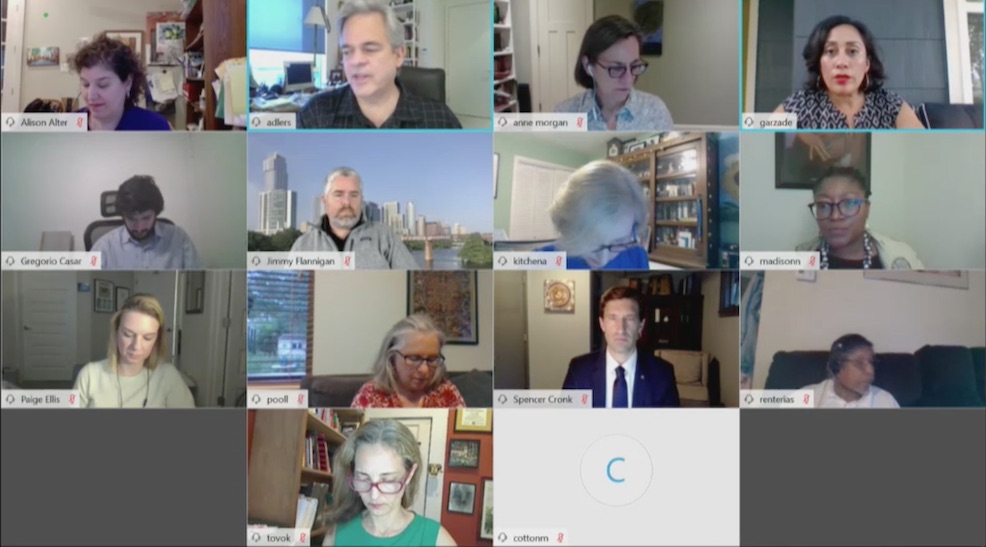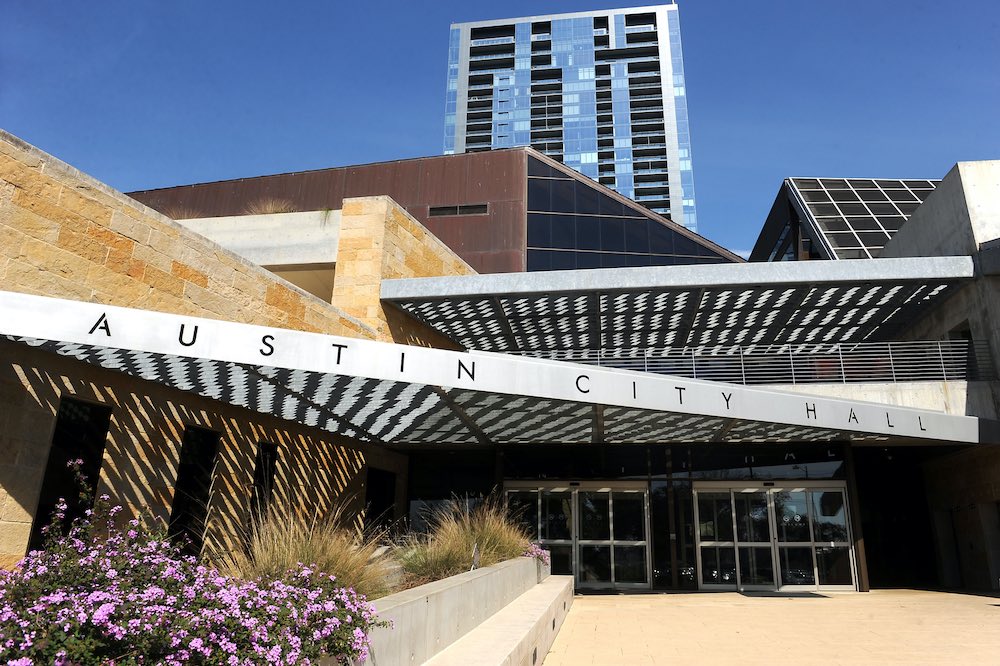Council Recap: Strategies for Keeping Austin Workers Safe
City Council tackles reopenings, relief funds, and more
By Austin Sanders, 2:23PM, Fri. May 22, 2020
In a unanimous vote at Thursday's regular session, Austin City Council has called on staff to create a plan to help keep Austin workers safe as businesses across Texas begin to reopen despite the continuing COVID-19 pandemic.
The resolution introduced by Council Member Greg Casar asks for “a unified city strategy” to protect workers over 65 and those with underlying health conditions, along with those who live with people at risk of COVID-19 complications.
That strategy would include promoting telework where possible, or improving on-site infection controls when remote working is not feasible. Casar’s resolution also emphasizes education and outreach to assist workers advocating for safer conditions, as well as to highlight what safety-net options, such as federal unemployment benefits or local pandemic relief, may be available if they feel unsafe returning to work.
This responds to the challenge faced by Austin Public Health as it offers COVID-19 testing to workers at construction sites; even though the testing is free, more than 60% of workers at job sites throughout town have declined, fearing they’d be put out of work and lose their only income should they test positive. Already, the city has prepared a mailer going out this weekend to 40,000 households about available local financial resources – especially assistance from the city’s Relief in a State of Emergency (RISE) fund via local nonprofits – that can help workers put their own and their families’ health first.
Language added by Mayor Steve Adler directs City Manager Spencer Cronk to convene “community task force meetings” on issues specific to high-risk groups and populations disproportionately impacted by the coronavirus. Some feedback will be gathered through the city’s already-established Quality of Life Commissions; additional sessions will be hosted to reach more parts of impacted communities.

This week’s COVID-19 headlines have focused on Austin’s Latinx community, where infections and hospitalizations have recently spiked. So far in May, Latinx Austinites have accounted for about 60% of both confirmed cases and hospitalizations, roughly twice the Latinx share of Travis County’s population. But Casar noted that it was important to reach all heavily impacted communities, including seniors and African-Americans.
CM Natasha Harper-Madison added context, noting these disparities reflect a long history of health, economic, and social inequity in Austin and around the country, made more intractable by the current crisis. “We have to recognize that these are long-term issues coming to roost,” Harper-Madison said, “and we won’t fix them overnight. But this is an important step.”
Council also approved a number of contracts to deliver COVID-19 relief, including the $7 million remaining (out of an initial $15 million) in the RISE fund. Advocacy groups like Grassroots Leadership urge Council to consider replenishing the RISE fund, possibly with some of the $170 million in federal stimulus and relief funding Council accepted on Thursday.
How that federal money should be allocated will be the subject of a special-called work session Thursday, May 29 at 1:30pm. Staff presented a preliminary spending framework at the May 19 work session that is already being revised (with funding for public health response likely to be increased, for instance). Casar and Mayor Pro Tem Delia Garza have also advocated for new RISE funding as well.
The freeze on eviction proceedings established by Travis County courts is set to be lifted on June 1, and Council adopted an ordinance to help residents struggling to pay their back rent. The federal CARES Act placed a moratorium on evictions and on accrual of late fees on all properties that participate in a federal housing program, or those that are financed through a federally backed mortgage.
It’s been difficult for tenants to figure out if their landlords and properties are covered by that moratorium. Organizers at Building and Strengthening Tenant Action (BASTA) and Texas RioGrande Legal Aid put together a map identifying some such properties; the new ordinance requires landlords to respond within five days to written requests from tenants asking if they live in a protected property. Violations of the ordinance, which expires Sept. 30, are subject to a $500 fine.
Got something to say on the subject? Send a letter to the editor.
A note to readers: Bold and uncensored, The Austin Chronicle has been Austin’s independent news source for over 40 years, expressing the community’s political and environmental concerns and supporting its active cultural scene. Now more than ever, we need your support to continue supplying Austin with independent, free press. If real news is important to you, please consider making a donation of $5, $10 or whatever you can afford, to help keep our journalism on stands.
June 6, 2025
June 3, 2025
City Council, RISE fund, COVID-19 relief, eviction proceedings, coronavirus









